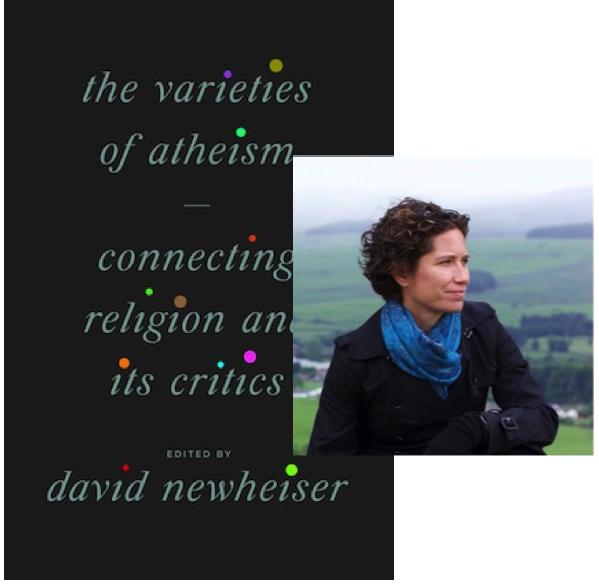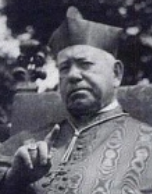
I cover here another chapter in Varieties of Atheism: Mary-Jane Rubenstein‘s “Atheism and Science” discusses the relevance of Einstein’s “cosmic religious sense” to atheism.
On Albert Einstein’s “Cosmic Religious Sense”
Mary-Jane Rubenstein begins in the seventeenth and eighteenth centuries where we find the relationship between science and religion taking shape. Our first view is that of the confusion between pantheism and atheism. Baruch Spinoza, could be described as both a “God-intoxicated man” and an atheist! If Spinoza could declare all Nature to be God, more rigid “believers” would react with despair that such an impersonal deity was no deity at all. Even philosophers are not all convinced: Arthur Schopenhauer dismissed pantheism as nothing but “a euphemism for atheism”; closer to home, Nancy Frankenberry writes
by assimilating God to Nature … [pantheists] raise the suspicion that one of the two of them is semantically superfluous. (quoted p. 21)
What does pantheism have to do with Einstein? Einstein (along with Niels Bohr) replaced Newton’s clockwork universe with an ever-shifting one, depending on where one lives and how one observes it. What sort of god does that make the world of nature? And what are the implications for religious debates?
It all began in April 1929….

. . . one week before a lavish gala at the Metropolitan Opera House in honor of Einstein’s fiftieth birthday, which would draw 3,500 people in support of the Jewish National Fund and the Zionist Organization of America. As American Jews prepared to celebrate their most famous kinsman, Boston cardinal William Henry O’Connell delivered an address to the New England Province of Catholic Clubs of America, urging their members to pay no attention to the Jewish pseudoprophet. Having previously denounced Hollywood and radio technology for proliferating a monstrous cadre of “masculine women” and “effeminate men,” the cardinal charged Einstein’s theory of relativity with endorsing the categorical indistinction of the topsy-turvy era. The theory, he insisted, was nothing more than “befogged speculation producing universal doubt about God and his creation, cloaking the ghastly apparition of atheism.” (Quoted from “Einstein Believes in ‘Spinoza’s God,”’ New York Times, April 25,1929 — Rubenstein, p. 21)
Relativity — what a word. As Rubenstein remarks,
. . . one can surmise from the ensuing controversies that the mere name of relativity connoted for O’Connell moral laxity . . . . In short, relativity’s denial of any absolute reference point for space and time seemed to O’Connell a denial of the Absolute altogether, and for that reason, it was both morally and empirically wrong. (p. 22)
Einstein appealed to Spinoza’s God, not explicitly in public, but in a telegram sent to an inquiring rabbi who made the telegram famously public:
Einstein or his supporters tried to repair some damage in subsequent publications and statements by stressing “the essentially mysterious” nature of the universe, declaring that he “confronts it with awe and reverence”. But that was not going to appease anyone devoted to a personal god. Eventually Einstein delivered a lecture on the question of science and religion. Rubenstein summarizes key points:
Science, he ventured, is concerned with “what is” whereas religion tells us “what should be”-, science uncovers “facts,” whereas religion prescribes “human thoughts and actions.” As such, neither is sufficient on its own; in Einstein’s now iconic words, “science without religion is lame, religion without science is blind”.
Whence, then, comes the perceived opposition between these mutually beneficial regimes? The largest impediment to the harmony between science and religion, Einstein ventures, is in the concept of a personal God. Channeling Spinoza, Einstein argues that science cannot affirm the existence of an anthropomorphic power who from time to time violates the order of nature in response to human petition. In addition to being scientifically inadmissible, he explains, such a God is ethically useless, relieving human beings of responsibility for their own actions. . . . For ethical and scientific reasons alike, then, Einstein insists that “teachers of religion must have the stature to give up the doctrine of a personal God”. Once people are free from this divine overlord, Einstein promises they will also be free from egoistic concerns (like having the largest gross domestic product or the biggest sport utility vehicle), eventually attaining that comportment his earlier essay called the cosmic religious sense: a humble feeling of reverence for the mysterious yet rational whole. And in this way, the religious person becomes affectively identical to the scientist. (pp. 24f – Rubenstein’s italics)
We can imagine the outrage among many mainstream clerics. Einstein’s view was denounced as opening up a world without any moral order, with no personal god to hold people to account. In fact, though, Einstein had made the opposite case: that if God were personal, then God would be responsible for human evil.
For Einstein, the words God and Nature were interchangeable. The world is “so rationally structured that we can think of it as divine.”
Channeling Spinoza, Einstein argues that science cannot affirm the existence of an anthropomorphic power who from time to time violates the order of nature in response to human petition. In addition to being scientifically inadmissible, he explains, such a God is ethically useless, relieving human beings of responsibility for their own actions. (p. 24)
Concerning “faith”, Einstein believed in the “rationality or intelligibility of the world”, and that’s where he ran into problems with Bohr’s quantum physics and unpredictable particles. Rubenstein quotes Einstein:
The basis of all scientific work is the conviction that the world is an ordered and comprehensive entity which is a religious sentiment. (p. 27)
I suppose it is a religious sentiment. But why can’t we say that religious sentiments are really poetically felt and expressed secular sentiments? (But that thought brings us to the next chapter and the next post.)
Mystery and comprehensibility went hand in hand for Einstein. But how could one make sense of an indeterminate universe of quantum mechanics? Rubenstein refers to the historian of science Gunther Stent’s article that interprets the Einstein-Bohr debate as less a debate about physical theory than about God.
What they were actually arguing about, Stent suggests, was whether or not there was a superrational power stabilizing the quantum-dicey universe, with Einstein holding onto “the traditional monotheistic viewpoint of modern science” and Bohr breaking through to a genuine, postmodern “atheism.” (p. 32)
When Rubenstein speaks of Einstein’s appeal to God (Does God play dice?) I take God to be another term for Nature. Bohr, she writes, was baffled by Einstein’s “presumption that God was a single, immutable order of things beyond the multitude of worldly phenomena.” She speaks of the “absolutism of determinism and the anthropocentrism of ‘reason'” underlying Einstein’s view of the “ordered universe”. (I had not thought of the “rational view” of the universe as being a projected anthropomorphism before.)
If God is equated with Nature, Rubenstein is suggesting that according to the physics of relativity and quantum mechanics we arrive at “a pluralistic, perspectival pantheism that would constitute even more of a threat than atheism to the anthropic father-friend of classical theism” (p. 21)
Such a “pantheology” would amount to atheism for some, but for others it would not, Rubenstein concludes.
(There are more things in Heaven and Earth, Horatio, than are dreamt of in your philosophy.)
The above post, I hope, gives a reliable small taste of a thought provoking chapter.
—-
Addendum:
From one of Rubenstein’s examples I am reminded of the disputes in Australia over landmarks that are sacred sites for some and sources of monetary wealth for others. That kind of conflict and its ultimate sources will in part be addressed in my next post when I look at the chapter by Andre C. Willis exploring how the Postmodernist Rorty was prefigured in certain ways by the Enlightenment philosopher Hume and what that means for a more compassionate and healthy society beyond any religious-atheist divide.
If you enjoyed this post, please consider donating to Vridar. Thanks!

The good cardinal’s denouncement of the Theory of Relativity was misplaced. The theory is rife with religious thinking (see The Religious Roots of Relativity by Glenn Borchardt).
A provocative idea. How can that be? Unless you want to make me put one more book in my “in pile” to read, please do give some summary of the actual argument! 😉
Funny how we keep ending up back at Parmenides under a different name, isn’t it?
There is some degree of irony in Bohr complaining about Einstein making religious statements. Bohr promoted the Copenhagen Interpretation of quantum mechanics which is profoundly religious as it depends on the existence in the observer of some quality which looks very like a soul. Schrodinger’s cat thought-experiment was intended to show exactly the problem with this, but Bohr and Heisenberg shrugged it off and avoided fully addressing it except in very hand-wavy terms.
The Cardinal, if one does some research on him, is a good example of how religion is prescribed belief in a political setting. The outward display or public presentation of belief becomes more important than private sincerity and the church just becomes a club which promotes and protects its members. A recipe for disaster whether dealing with a church, a police department, a hospital board or really any organisation which is given legal powers or privileges.
Atheism, or science in general, becomes a problem not because it attacks the belief system as such, but because it attacks the idea that the church is important. Once you do that then the ability of the church to prescribe is eroded and without that the organisation comes crashing down, along with everyone who depends on it.
A personal god who makes his or her wishes known via a personal relationship with selected members of society is a powerbase. Saying “really, aren’t we *all* part of nature and therefor part of god?” doesn’t allow much room for that. Saying that there is in fact no god leaves no room at all.
So, again, anyone questioning the ancient Christian church is getting involved in politics whether they like it or not, especially in pre-WWII Chicago (or pre-1980s Ireland, or modern day Pakistan etc.).
Not that I’m keen to dump a wet blanket on your enthusiasm, but I suspect that even if the church were to disappear it would do nothing to remove “God” from our consciousness. We would be religious in another way — perhaps even moreso without what might even be in some ways a moderating influence of the institutional form of religion: https://vridar.org/2020/06/20/modes-of-religiosity/